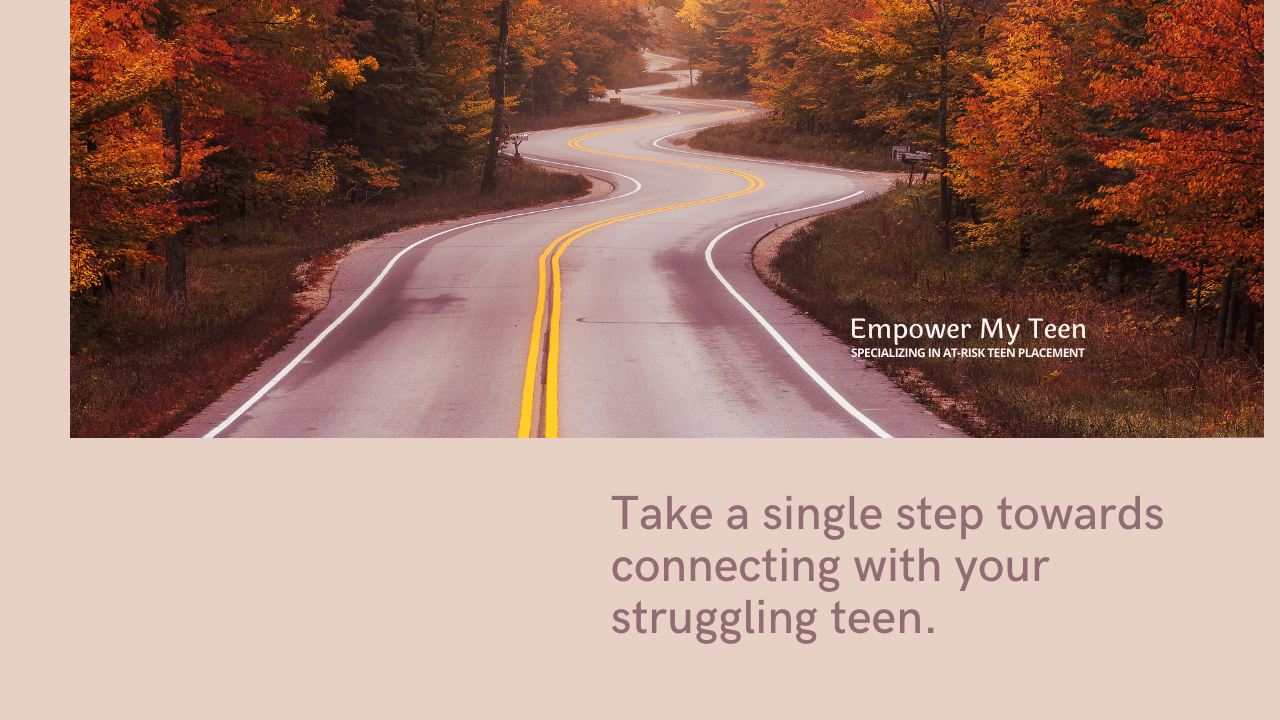As a parenting coach, I often talk to parents who feel like they are failing when it comes to raising their teens, especially when a parent has a teen with ADHD who is in-midst of a rebellion or acting aggressively.
In this blog, I’d like to shed light on the reality of parenting teens. It’s my goal to equip you with the wisdom to do so confidently, wisely, and compassionately.
We must admit that parenting a child with ADHD can be difficult, even before they reach adolescence. We strive to give our children the best care, such as therapy, medication, praise, and tools to cope with their ADHD. If we do these things right, we may only experience chaos 2-3 times per week. 😀
What is the Reason for the Rise in ADHD Diagnoses?
First, let’s make sure we have a good understanding of what we are talking about:
Attention Deficit Hyperactivity Disorder (ADHD) is a condition that affects the way a child processes information and interacts with their environment. The effects are difficulty in focusing, controlling impulses, and managing emotions.
I think everyone today has heard of ADD and ADHD. According to the most recent statistics, 14.5% of boys, or 1 in 9 today, are diagnosed with ADHD. Boys are 13% more likely to be diagnosed than girls.
There is recent data that suggests that teenagers with ADHD are more likely to be involved in legal issues and substance use as juveniles than their non-ADHD peers. In my practice as an Educational and Therapeutic Consultant, many of the boys I’ve placed in programs over the years have been kids with ADHD.
But frankly, having ADHD does not predict that your good kid will be doing “bad” things or will become “at risk”.
Unlike boys, girls are not often jumping on the furniture; instead, many girls are daydreamers, living in fantasy land, and often appear distracted. The ADHD symptoms for girls present differently than for boys. Therefore research shows that girls with ADHD are often misdiagnosed or not diagnosed until they are adults.
So, why the increase in Teens with ADHD?
Well, there’s a belief that the Internet, gaming, and pharma marketing are the reasons for the increase. I won’t venture to guess; I think it makes as much sense to say that perhaps in the past, it wasn’t diagnosed enough.
Parenting Teens with ADHD: Strategies
The teenage years are unpredictable, but when you are parenting an adolescent with ADHD, they are an emotional rollercoaster, and as parents, we need to understand the new “normal.”
Triggers are in every corner, and things can spiral out of control quickly! So, as your child enters puberty, knowing how to avoid these triggers becomes even more important than ever before.
Think about it. Your child has a meltdown for no reason. While you may try to stay level-headed, doing so is hard, and often, our emotions get the best of us.
For any parent of children with ADHD, the mantra is to be consistent. How we respond to our teen’s behavior problems or emotions makes a difference between a small outburst and a total meltdown.
Considering I’m not a big fan of chaos, I encourage my clients to do whatever is necessary to avoid meltdowns and crises. No one benefits from these episodes.
The teenage years can be unpredictable and challenging, but more so for those with ADHD. Because ADHD affects a child’s ability to regulate their emotions and impulses, these teens often respond more intensely to situations.
Teens with ADHD can become disruptive with screaming, cursing, and emotional outbursts, sometimes even becoming physically violent. Thus, a parent of a child with ADHD needs to learn how to defuse situations, anticipate triggers, and not react when these situations arise.


Connection as a Parent Strategy
When we use positive reinforcement, behavioral modification, and a connection strategy, we change the relationship. We build meaningful relationships through the power of empathy, understanding, good communication, and unconditional love.
For this strategy to work effectively, we must learn to listen attentively to not just what our child says but what they are feeling. We need to respond with compassion rather than judgment.
This connection nurtures and encourages healthy, strong bonds. Develops mutual respect, builds trust, and opens the lines of communication.
A child who has a strong relationship with their parent is less likely to become adversarial at every turn. A child that feels loved, confident, and secure may struggle with his emotions or impulsivity but knows without a doubt that they are loved.
While you will still have conflicts during adolescence, the bond and deeper connection with your teen will keep your relationship from deteriorating.
Teenagers that grow up with parents who focus on their emotional well-being are more likely to listen emphatically and want to protect the trust and bond they have with their parent. They will still struggle with adolescence, and there will be difficult days, but the bond won’t break.
If this sounds like the relationship you want to have with your child. Then start by giving your child more emotional support, nurturing, rewarding, and encouraging good behaviors. Empower your teen to be responsible and to trust you. Protect your bond and show concern for their emotional well-being. Find a balance between discipline and connection.
The connection between a parent and their child can be a powerful tool for protecting the child from making decisions that could potentially be dangerous. Especially if the child is prone to emotional outbursts, has difficulty controlling their impulses, or is struggling with mental health issues.
Take a moment and consider your relationship and the conversations you have with your teenager.
Understanding Your Parenting Style and Its Influence
This is a controversial topic. Over the years, I’ve found myself speaking to parent groups, and most of the time, the discussion turns heated. The topic is connection vs. control.
When raising teens, giving up our need to be in control changes the relationship dynamics and leads to better results. I’ve found this to be true for every child. But it is a game changer when it comes to parenting a boy with ADHD who is going through puberty.
Many parents tend to take on the role of “enforcer.” We have a tendency to demand respect. After all, we set the rules and boundaries and expect our children to comply. When our children disobey, we rely on discipline and expect our children to get “in line.”
I’m here to tell you that wanting compliance is not wrong, but how we go about getting our kids to comply is likely to be the root cause of the pain, chaos, and anxiety in your household during the teen years.
A reason for the discord between parents and children is that we are more likely to focus on a teenager’s behavior and actions instead of their emotional needs. If your parenting style is stricter and you demand respect and obedience from your child, it’s not necessarily wrong. However, consider whether this approach is achieving the desired effect.
If you threaten or punish your child and it doesn’t work, or they rebel and refuse to comply with your rules, what will you do then? How much are you willing to escalate? And what are the consequences of complete rebellion and disobedience?
Which of these conversations sounds more like the conversations with your teenager?
Scenario 1
Parent: “So, how did that test go today?”
Teenager: “I think I did pretty well!”
Parent: “I’m so glad to hear it! That hard work really paid off. What would you like to do for fun this weekend?”
Teenager: “I was thinking of going to a movie with my friends.”
Parent: “That sounds great! Let’s review the house rules, including what time you need to be home, before you go.”
This is an Authoritative parenting style.
Scenario 2
Parent: “So how did that test go today?”
Teenager: “I think I did pretty well!”
Parent: “That’s awesome, I’m so proud of you. Would you like to go to a movie with your friends this weekend?”
Teenager: “That would be great!”
Parent: “Sure thing! I’ll make sure the rules are set and that you have the necessary arrangements. Have fun!”
This is a Permissive parenting style.
Scenario 3
Parent: “So how did that test go today?”
Teenager: “I think I did pretty well!”
Parent: “Hmm… that’s nice.”
Teenager: “Can I go to a movie with my friends this weekend?”
Parent: “That’s fine. Just let me know if you need anything.”
This is a Neglectful parenting style.
Scenario 4
Parent: “So, how did that test go today?”
Teenager: “I think I did pretty well!”
Parent: “That’s great, but I want to see proof before you do anything else this weekend. I’ll need you to show me your test score first.”
Teenager: “Yes, mom.”
Parent: “Good. Once you’ve done that, you can decide what you would like to do this weekend.”
This is an Authoritarian parenting style.
If you find that the conversations you are having with your teens are not optimal. Today is a good day to make a change.
We all want our children to be happy and stay safe. How we go about it makes all the difference.
Do you need to develop better parenting strategies? Do you need help knowing what to do and when? Do you need support, guidance, and someone to help you stay accountable?
If you answered yes to these questions, then parent coaching can help. Contact me to discuss what’s happening with your teen and how to improve your parent/child relationship.
- CHADD: Children and Adults with Attention-Deficit/Hyperactivity Disorder (CHADD) is a non-profit organization that provides education, support, and advocacy for individuals with ADHD and their families.
- Understood: Understood is a website that provides resources and support for families of children with learning and attention issues, including ADHD.





